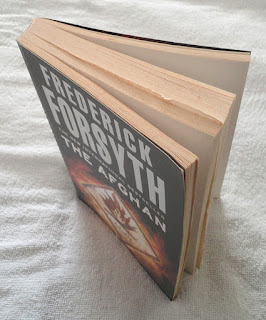For as
long as I’ve worked with collectible books and book collectors, I’ve never been
able to fathom why it is that people collect Biggles books (and other
books written by “Capt.” W.E. Johns). I have a theory about it but – prima
facie – it seems like the last thing that anyone with intelligence and a
solid income would waste their time with.
Let’s be
clear: I have a penchant for vintage literature of various kinds and I do
see the value of collecting children’s books – they rarely survive the rigours
of the nursery, so finding them in pristine condition is incredibly difficult –
but with this range of books, I’m stumped.
First,
although it’s true that these books are becoming increasingly harder to find,
it’s not as if they’re especially scarce. They were pumped out in huge
print-runs from the early 30s onwards, so finding them isn’t difficult. Of
course, in the 1960s, the character fell into huge disfavour, with the series’
outmoded colonial attitudes, and so finding the books published from about 1957
to just before Johns’s death in 1968 is a different matter altogether;
nevertheless, with original printings, re-printings and licensed reproductions
(mainly by Oxford University Press, but also in many other languages – other
than French; they knew better!), these books are by no means scarce.
My
instincts give me intimations as to why Biggles is such a common collecting
obsession: it’s because it’s a stereotypical collecting type. Just like, in
fiction, posh characters (Dorothy L. Sayers’ Lord Peter Wimsey springs to mind)
tend to fiddle about with their incunabulae, people who decide that
they’re going to begin collecting books think, “what should I collect? I know –
Biggles!”. And that’s as far as it goes.
The
character of Biggles has been a source of ridicule since the series loss of popularity
in the 60s, with all the usual tawdry jokes about what was actually going on
between him and Ginger and Algy, but even this doesn’t seem to put off
potential collectors. It’s obvious from even the lightest skim of the material
that the purpose of Biggles and his Air Detectives is to be counted as the
morally upright targets of the depredations of Them (“Them” being everybody not
covered by the armour of Englishness and Empire). Thus, we see Ginger being
horsewhipped by Turks, and Biggles being clubbed by Zulus, along with any
number of other loathsome racial stereotypes. The obvious whiff of
homoeroticism that all this tacitly approved rough trade generates is clearly
what Ian Fleming picked up upon too, and is the source of the “I know – I’ll
let myself get captured by the baddies in order to learn their dastardly plan”
manoeuvres that Bond comes up with. Biggles is, in short, Bond-lite.
And along
with this both series have acquired a frisson of the illicit; like
collecting them is doing something ‘naughty’. This might stand up in the case
of Bond, or with Sax Rohmer's Fu Manchu books, but with Biggles? Meh.
I
theorise that those who decide to collect Biggles reach a point – usually after
their first major purchase – when they realise all of the above and start to
have misgivings about what it is that they’re actually doing. At that point
however, they’ve taken a major step and, as Macbeth notes, “should they wade no
more, returning were as tedious as go o’er”. The redeeming feature of Biggles
books is that – compared to Bond novels – they’re much cheaper: a first edition
of Casino Royale in good nick can be worth thousands; Biggles books
rarely top the $500 mark.
From my
perspective as a bookseller I feel torn – I don’t want Biggles books in my
shop; if you’ve ever seen Biggles in Australia (1955), you’ll know why.
However, I want to make a living and people are seemingly willing to slap down
moderate sums for these reads. So, what do I do? Of course I’ll
acquire them when I find them, but I’ll also be looking askance at the people
who come in to buy them: unless they’re the type who has bought wholesale into
everything that Biggles represents, I might be able to turn them onto some
other – less grubby – collecting sphere.



























